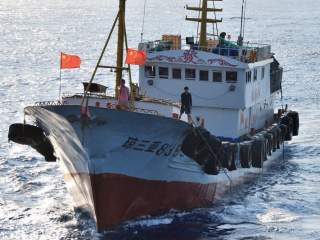China's 'Sea Phantom' Fleet Prowls the Open Waters
Beijing has a long history of sneaking up on rival ships.
Judging from these recent episodes, and recalling the 1979 Minsk incident, it would not be presumptuous to say that Beijing’s “sea phantoms” will, given improved capabilities and accumulated experience in aggressively challenging physically larger targets (including ships as large as an aircraft carrier), see their role in spearheading future maritime confrontations expand significantly in the disputed waters. The recent Unit 488 exercise merely illustrates Beijing’s determination to deploy “sea phantoms” in well-orchestrated actions, either autonomously or in conjunction with Chinese warships and coastguards, against its rivals. It is therefore no longer prudent to overlook these elusive forces; including them in a future enhanced Code on Unplanned Encounters at Sea now constitutes an urgent necessity.
Koh Swee Lean Collin is associate research fellow at the Institute of Defence and Strategic Studies, a constituent unit of the S. Rajaratnam School of International Studies based in Nanyang Technological University, Singapore.
Image: Wikimedia Commons/U.S. Navy

